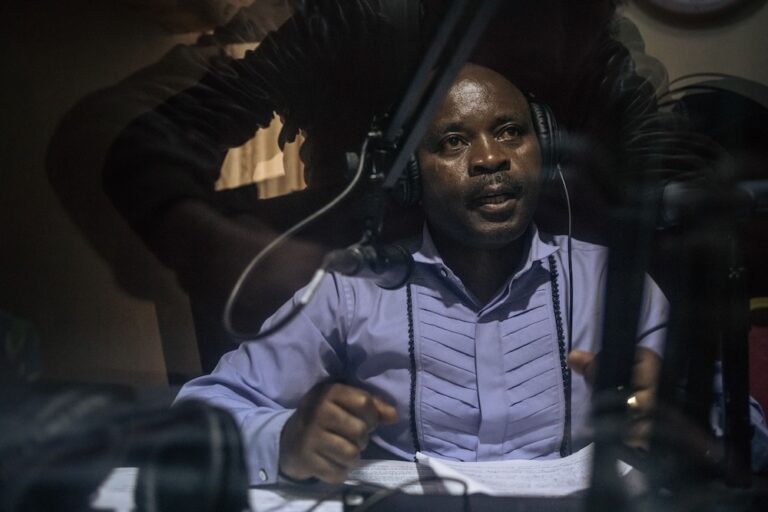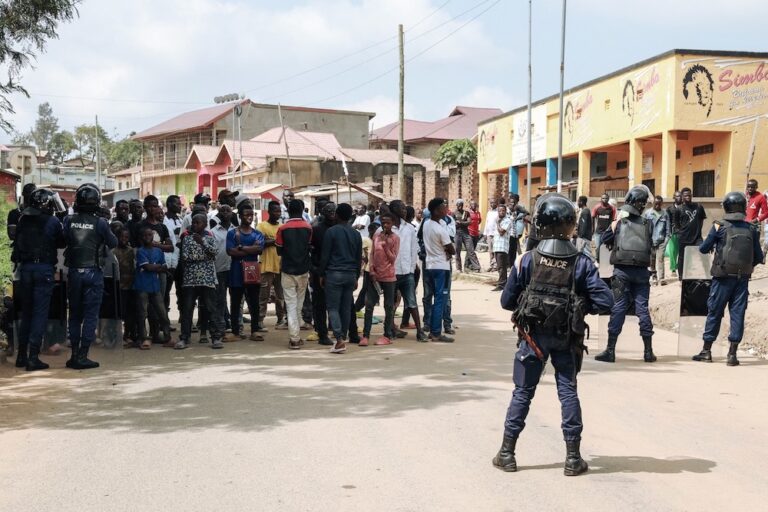(JED/IFEX) – On 16 February 2007, the public prosecutor of the Kalamu Peace Court in the city of Boma, in Bas-Congo province, called for a 12-month prison sentence and payment of US$12,500 in damages by Popul Ntula Vita, the local correspondent for the weekly “La Cité Africaine”, based in the provincial capital, Matadi. The court […]
(JED/IFEX) – On 16 February 2007, the public prosecutor of the Kalamu Peace Court in the city of Boma, in Bas-Congo province, called for a 12-month prison sentence and payment of US$12,500 in damages by Popul Ntula Vita, the local correspondent for the weekly “La Cité Africaine”, based in the provincial capital, Matadi. The court is now deliberating on the case and must, in accordance with the law, reach a verdict within a week.
The journalist is accused of “defamation and damaging allegations” against Thomas Ndombasi, the local head of the tax centre of the public tax office (Direction Général des impost, DGI), and three of his colleagues. In a 6 January 2007 article entitled “Alert at the Boma Tax Centre”, the journalist accused Ndombasi and his three colleagues of misappropriating funds from the issuing of vehicle licence plates. The journalist contended, among other things, that the licence plates were over-priced and the price difference was pocketed by the above-mentioned individuals.
Unhappy with the newspaper’s allegations, Ndombasi filed a complaint against the journalist on 22 January. The first public hearing in the case took place on 9 February.
JED, which is shocked and scandalised by the public prosecutor’s request, is asking the judge not to sentence the journalist to prison and a heavy damages payment. It is an open secret that DR Congo’s fiscal administration is ravaged by corruption, which even the country’s highest authorities regularly denounce. Condemning the journalist to such a heavy sentence would undermine the press’s role in establishing good governance by exposing the corruption that plagues the country.
JED notes that, for the last four years, it has been fighting to get Congolese lawmakers to decriminalise press offences. According to the Congolese Criminal Code, inherited from the Mobutu era, in cases of “defamation and damaging accusations”, the judge is not bound by the truth or falsity of the journalist’s allegations. All that matters are the honour and esteem of the person who is the subject of the allegations. Such a law can only encourage the growth of bad governance.


